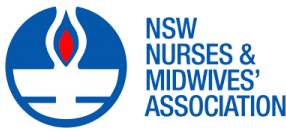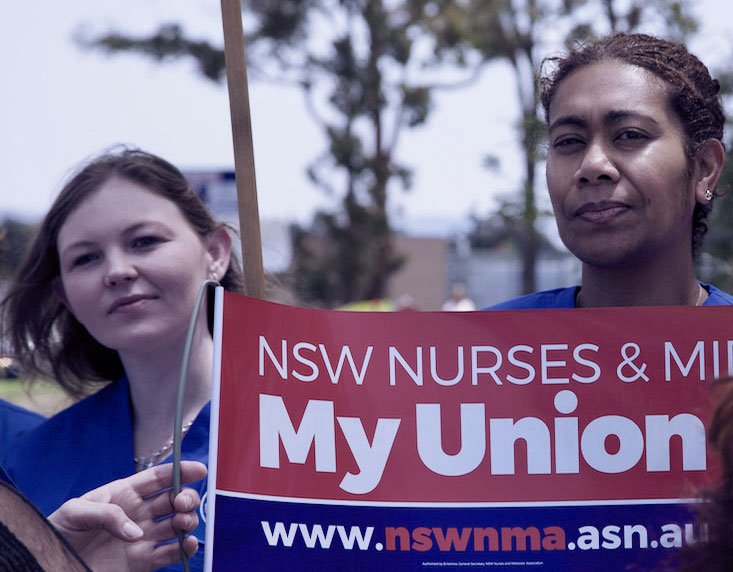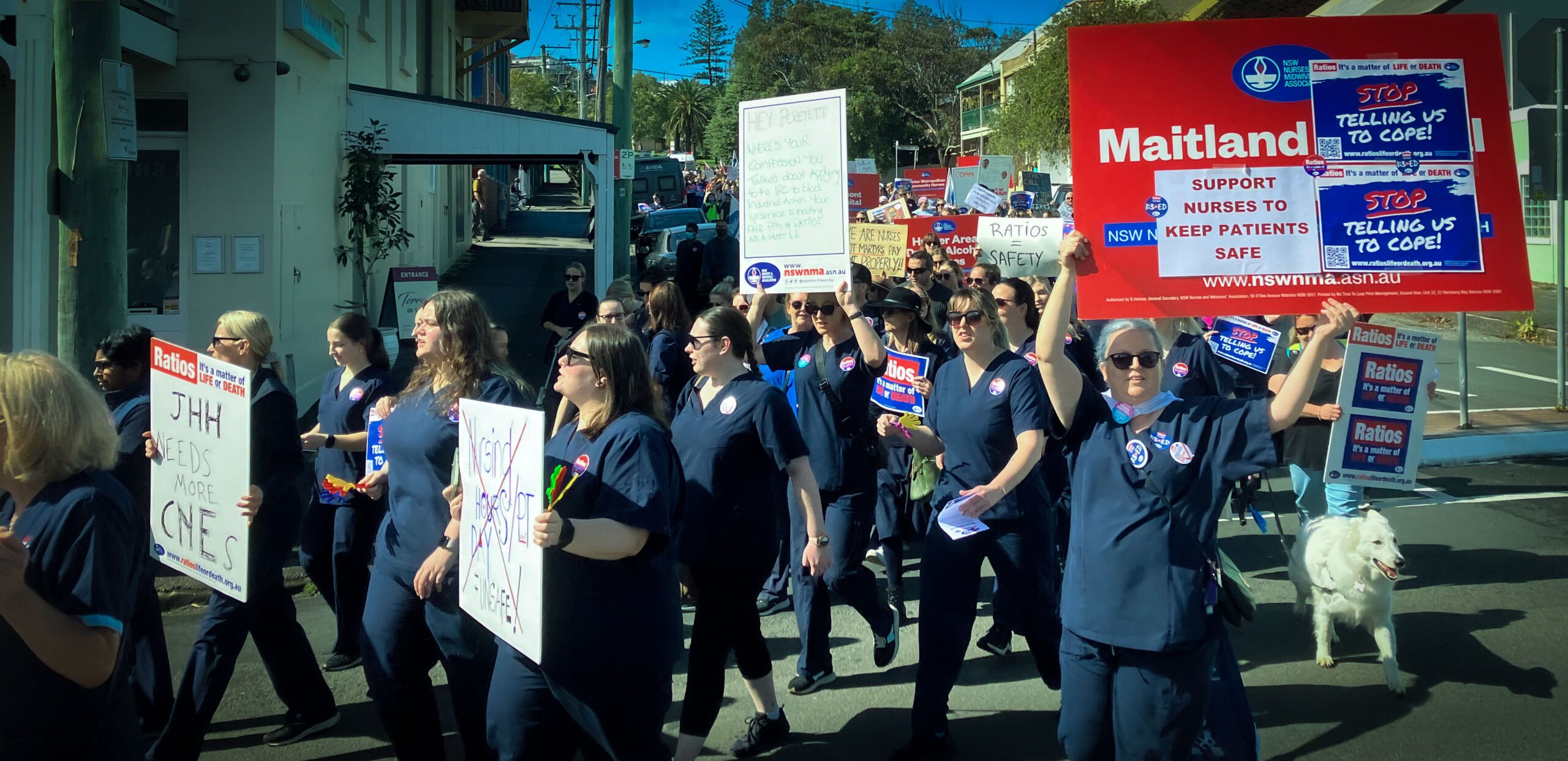The prevalence of family violence in Australia and the importance of addressing violence in the workplace were major topics of discussion during day one of the NSW Nurses and Midwives’ Association’s (NSWNMA) 70th Annual Conference in Sydney.
More than 720 nurses, midwives, members and guests from across the state gathered at Rosehill Gardens Grand Pavilion yesterday to hear from eight guest speakers during Professional Day.
General Secretary of the NSWNMA, Brett Holmes, said the broad theme ‘Illuminating the Hidden Issues’ provided a platform to highlight issues significant to the professions of nursing and midwifery.
“It was a great opportunity for delegates to take a step back and look at key factors that influence their professions and the changing landscape of health care, but also broader issues like antibiotic resistance and non-communicable diseases, right down to their own care provisions and the pressures they face in the workplace,” Mr Holmes said.
Australian of the Year 2015, Rosie Batty, received multiple applause and standing ovations from the Conference floor as she outlined her community campaign ‘Never Alone’ to raise awareness of the family violence epidemic.
Part of the Luke Batty Foundation, the ‘Never Alone’ campaign aims to support victims of family violence and to call on governments to develop new policies, budgets and cultural changes to the status quo.
“To know that so many people now recognise the issue and care and are prepared to do something about it, to change society, it is very overwhelming, but it means that Luke did not die in vain. His voice is heard through me,” said Ms Batty.
“It doesn’t matter what profession, what suburb, what socio-economic environment you come from, it is one in three women who are affected and, sadly, it’s one in four children.
“The Never Alone campaign just presented a petition to COAG with 15,000 people who have signed up to the campaign, to say we would like to see respectful relationship programs in our schools, from as early as kinder, in every state across Australia.”
The necessity for family violence leave clauses within the health and ageing sectors was also highlighted, to allow victims an opportunity to take time off work to recover and process the trauma they have experienced.
Mr Holmes outlined not all sectors of the health industry had recognised the need to support workers who may have also been victims of family violence.
“After continued lobbying by the NSWNMA, currently 77 per cent of our members have some form of family violence leave in their Awards or Agreements, we need to keep working to improve this figure,” Mr Holmes said.
“It’s disappointing the largest private hospital corporations like Ramsay, Healthscope, Healthe Care and the Adventist hospitals have so far refused to recognise this issue and recognise it in employment agreements, to guarantee support for victims when they are most vulnerable.”
Conference attendees also heard from Dr Alessandro Demaio, a Fellow in Global Health at Harvard Medical School, on the growing burden of non-communicable diseases around the world.
“We have four major diseases – cardiovascular disease, diabetes, cancer and chronic lung conditions or respiratory disease – that account for about two-thirds of global deaths and four major modifiable share risk factors, things that we can change at the population and individual level,” Dr Demaio said.
Associate Professor Adam Elshaug spoke on low-value care, identifying a new movement across the USA, Canada and now Australia, to identify and challenge procedures, prescribing and diagnostics often used unnecessarily but at great cost to health budgets.
Professor Elshaug also pointed to the stupidity of government arguments regarding unsustainable health spending, given that Australia compares its health spending with the OECD and is considered average, spending only half as much on health as the USA.
Dr Julie Henderson, Senior Research Fellow in the School of Nursing and Midwifery at Flinders University, outlined some home truths about missed patient care, including how basic nursing care was considered the most commonly missed activity throughout day, afternoon and night shifts.
Meanwhile, Age Discrimination Commissioner and Disability Discrimination Commissioner for the Human Rights Commission, Susan Ryan AO, discussed the importance of breaking the barriers of ageism in the workplace and eliminating aged prejudice, such as ageing jokes and derogatory comments.
Today, Acting NSW Minister for Health, Pru Goward, will address nursing and midwifery delegates attending Day Two of the Conference and participate in a question and answer session from the floor. Delegates will also hear from the Federal Shadow Minister for Health, Catherine King, and Federal Secretary of the Australian Nursing and Midwifery Federation, Lee Thomas.
The 70th Annual Conference runs until Friday, July 31 at Rosehill Gardens Grand Pavilion, Sydney.







